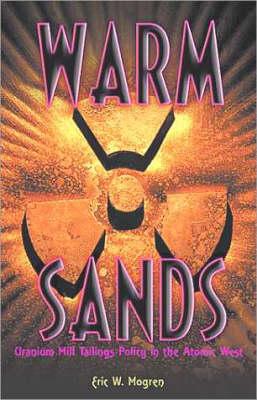Mogren, Eric W. Warm Sands: Uranium Mill Tailings Policy in the Atomic West. Albuquerque: University of New Mexico Press, 2003. Curiously, uranium mining and milling have been largely understudied by historians, despite a wealth of literature on other types of mining, especially gold, silver, copper, and coal. Mogren’s Warm Sands is a welcome addition to the field, reminding us that the danger of the nuclear enterprise was not limited to bombs and power plants. Warm Sands gives an institutional analysis of how the debates over legal and political authority, scientific expertise, and public health and safety both delayed and shaped the formation of mill tailings policy in the United States. The first three chapters give a clear overview of the history of the mining, milling, and use of uranium and related elements from the late-eighteenth century to the mid-twentieth century. The next four chapters examine the debates between western states and the federal government over liability for environmental contamination from mill tailings. Mogren shows that public concern over the tailings began as early as 1950 when it was discovered that the Colorado River Basin was becoming significantly contaminated. As workers, residents, and state and local government officials increasingly questioned the safety of the tailings, the Atomic Energy Commission (AEC) and the US Public Health Service (USPHS) each denied responsibility. The debate over who was responsible for cleaning up the mess continued over the next two decades, as first water contamination, then air pollution and radon exposure brought the question to the fore. The strength of the book is its clear description of policy debates, institutional infighting, and technological processes. (Text adapted from an H-Net review by Mara Drogan.)
Warm Sands: Uranium Mill Tailings Policy in the Atomic West
Mogren, Eric W. | from Multimedia Library Collection:
Books & Profiles



